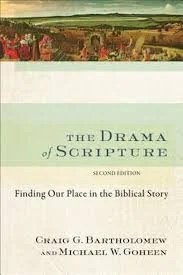Te Paipera Tapu - A Story Leading to Jesus: Week 4
Reading the Law
Opening Prayer:
Lord God,
You are gracious, loving and kind.
Give us the wisdom to read your word deeply and the courage to accept that doing so opens us up to the change we need in order to be your kingdom people for the world.
In Jesus’ name,
Amen
Key Scriptures:
And God spoke all these words:
2 “I am the Lord your God, who brought you out of Egypt, out of the land of slavery.
3 “You shall have no other gods before me.
4 “You shall not make for yourself an image in the form of anything in heaven above or on the earth beneath or in the waters below. 5 You shall not bow down to them or worship them; for I, the Lord your God, am a jealous God, punishing the children for the sin of the parents to the third and fourth generation of those who hate me, 6 but showing love to a thousand generations of those who love me and keep my commandments.
7 “You shall not misuse the name of the Lord your God, for the Lord will not hold anyone guiltless who misuses his name.
8 “Remember the Sabbath day by keeping it holy. 9 Six days you shall labour and do all your work, 10 but the seventh day is a sabbath to the Lord your God. On it you shall not do any work, neither you, nor your son or daughter, nor your male or female servant, nor your animals, nor any foreigner residing in your towns. 11 For in six days the Lord made the heavens and the earth, the sea, and all that is in them, but he rested on the seventh day. Therefore, the Lord blessed the Sabbath day and made it holy.
12 “Honor your father and your mother, so that you may live long in the land the Lord your God is giving you.
13 “You shall not murder.
14 “You shall not commit adultery.
15 “You shall not steal.
16 “You shall not give false testimony against your neighbour.
17 “You shall not covet your neighbour's house. You shall not covet your neighbour's wife, or his male or female servant, his ox or donkey, or anything that belongs to your neighbour.”
18 When the people saw the thunder and lightning and heard the trumpet and saw the mountain in smoke, they trembled with fear. They stayed at a distance 19 and said to Moses, “Speak to us yourself and we will listen. But do not have God speak to us or we will die.”
20 Moses said to the people, “Do not be afraid. God has come to test you, so that the fear of God will be with you to keep you from sinning.”
21 The people remained at a distance, while Moses approached the thick darkness where God was.
Exodus 20:1-21
Sermon Summary:
What was Jesus’ attitude to the Law? How are we meant to view the Law? What are we meant to do with the tricky parts of it, the bits that really don’t seem to have any relevance for or connection to our lives today? How are we meant to read the Law?
There are 613 laws in the Old Testament law, from the well-known ones like the 10 commandments (do not murder, do not commit adultery, etc) to less well-known laws like do not wear clothing made from more than one material, and do sow your fields with more than one kind of seed. And they are just the ones in the Bible; it is thought that the ancient Israelites had other law books with further laws in them.
These laws were to help Israel live holy lives as a set-apart people called by God, demonstrating to the world around them God’s love. The Law was a gift from God. It was a good thing that God was giving to his people – the people he had already saved. It can be very easy for us to think that grace was invented with Jesus; that prior to Jesus everything was about obeying God’s law, and then Jesus came and unveiled God’s grace so the law could be abolished. But God had already been gracious to his people: he had rescued them from slavery in Egypt, declared that he was their God and they were his people, and given them the gift of the Law. Grace was already present and had already been shown to God’s people.
He saves them and gives them guidance on how to be the people they were always meant to be – how to live as citizens of God’s kingdom within his God world. In Exodus, God gives the Israelites the ten commandments and then further laws to help them live out these commandments.
How do we read these laws? What is particular to the genre of the law? What must we remember as we read them? The laws contained in the Torah are generally quite realistic. They weren’t given to a people already perfect. The laws exist in the Hebrew culture of the time to slowly bring about transformation. For example, slavery is not outlawed in the Bible. But there are many laws surrounding it, laws that give slaves permission to do many things and that stop slave owners from mistreating or abusing their slaves – thus offering a radically different form of slavery than the surrounding cultures had at the time.
The law gives lots of guidance on what to do when arguments, fights, disputes, accidents and death happen and how to navigate a holy and just way through these (and other) events. The law doesn’t assume Israel is perfect. Instead, it faces the dirt and grit and tragedy of everyday life full on. They are realistic. They offer a moral barrier that seeks to limit evil and its effects.
No matter how strange and perplexing these 613 laws might be, their purpose is to help the people of God better love their neighbour and God. The laws are meant to allow God’s people to be God’s priests for the world and to share his love with the world.
Were these laws written to us? No, they were written to a nomadic people wandering through the wilderness over 3,000 years ago. But if we were asking if they were written for us, the answer would be yes. In the law we find the wisdom of God, we find the core values of the kingdom laid out practically and realistically. We can find the wisdom of God in the law.
A key interpretive tool for us today is what Jesus said about the law. What we often forget it that in many instances, Jesus’s interpretation of the law actually intensified the law, seemingly making it even more restrictive. It is said you shall not commit murder, he says, but I tell you anyone who is angry will be subject to judgement. And he does a similar thing with adultery (and others).
Jesus is discerning the wisdom behind the law. He’s digging below the surface to the heart of the matter. Murder is bad enough and shows utter disregard for someone’s life. But so does being angry with them, so does hating them, so does wishing evil upon them.
All people are made in God’s image and are worthy of love and dignity. That is the wisdom of God Jesus reminds people of here. Jesus, the one who embodies the law, is the saviour, the one who fulfils the law, and who knows it and keeps it when we cannot, the one whose wisdom helps us live as his kingdom people.
Questions to Consider:
What do you think of when you think of the law? What thoughts or emotions come to the surface when you think of the law?
Why was the law so important?
Are there any Old Testament laws that you think are ripe for come back? Why?
Why do we still follow some Old Testament laws but not others?
Why do some people still strictly adhere to certain laws (e.g. no tattooing the skin) while others don’t? What reasons do people give for this?
What was God’s purpose in giving the law to the Israelites? What did he hope to achieve? What did he hope they would achieve?
What was Jesus’ attitude towards the law? What does mean our attitude should be?
What is the relationship between law and grace in the Old and New Testaments?
How are we meant to interpret and apply the law today?
Practices to Consider:
Read a part of the law and ask: what does this mean for us today? How do we apply this today? What is its place/equivalent today?
You may wish to use Exodus 21:1-11 as an example and ask what this passage of the word of God has to say to us today.
Prayer Prompts:
Pray for a fresh encounter with God through portions of the Bible that you have not seen him in before.
Additional Resources:
Recommended Reading:





